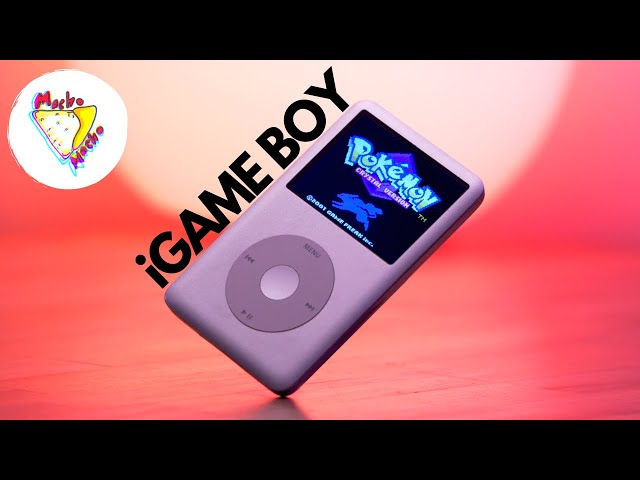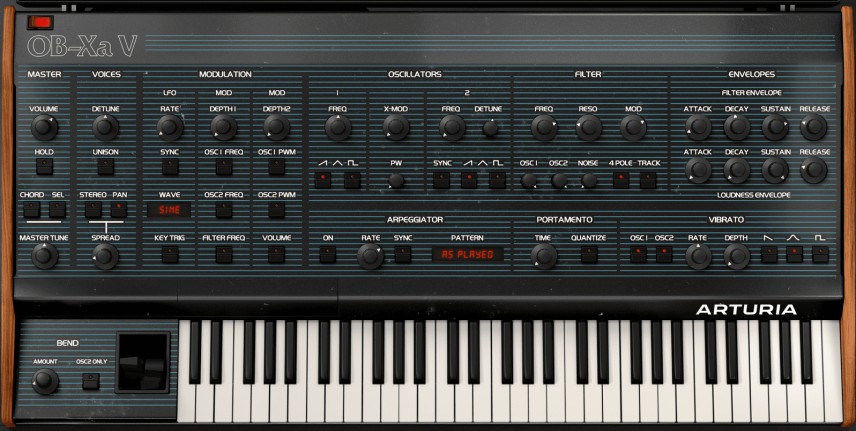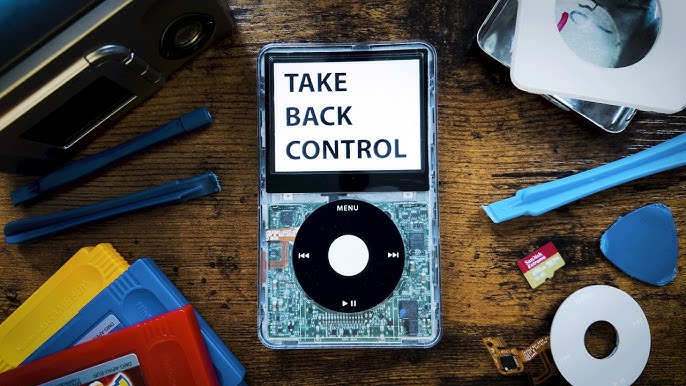In the annals of technology, few devices command the same level of nostalgia as the Apple iPod. With its iconic clickwheel and promise of “1,000 songs in your pocket,” it didn’t just revolutionize the music industry; it set the stage for the mobile revolution that followed. While its primary function is etched in our collective memory, a lesser-known chapter of its history has recently been brought back into the light: the world of iPod gaming. Recent breakthroughs in digital preservation have successfully unearthed and saved the entire library of clickwheel-era games, offering more than just a trip down memory lane. This achievement in digital archaeology provides a critical lens through which we can re-examine the iPod’s legacy, trace its DNA through the modern Apple ecosystem, and understand the foundational principles that continue to drive the latest Apple Vision Pro news. This isn’t just iPod news; it’s a story about the genesis of the app economy and the enduring power of intuitive design.
The Forgotten App Store: Gaming on the Clickwheel
Long before the App Store became a cultural and economic powerhouse, Apple quietly experimented with mobile gaming on its most popular device. This early foray was a crucial, albeit overlooked, step in the company’s evolution from a computer manufacturer to the purveyor of an all-encompassing digital lifestyle. Understanding this period is essential to appreciating the trajectory of everything from iPhone news to the latest iOS updates news.
From Easter Eggs to a Dedicated Store
The earliest form of gaming on the iPod was an easter egg. The original models included a hidden game called Brick, a clone of the Atari classic Breakout, accessible through a specific button combination. It was a simple, delightful surprise that hinted at the device’s potential beyond music playback. However, Apple’s ambitions grew. In September 2006, with the release of the 5th generation iPod (often called the iPod Video), Apple launched a dedicated games section on the iTunes Store. For $4.99, users could purchase and download titles developed by major studios like EA, Namco, and Sega, as well as by Apple itself. Games like Vortex, iQuiz, and Texas Hold’em became surprisingly popular, turning the music player into a pocketable entertainment device.
Technical Constraints and Ingenious Design
Developing for the clickwheel iPod was an exercise in creative constraint. Developers were faced with significant limitations: a small, non-touch 320×240 pixel screen, minimal processing power, and an input method limited to the circular scroll wheel and a few physical buttons. Yet, these constraints fostered incredible ingenuity. Vortex, a 360-degree breakout-style game, used the circular motion of the clickwheel to control the paddle in a way that felt incredibly natural and intuitive. This focus on marrying hardware and software to create a seamless user experience is a core tenet that persists today, evident in the haptic feedback of an Apple Watch or the precise tracking of the Apple Pencil on an iPad.
The End of an Era
The clickwheel gaming experiment was short-lived. The launch of the iPhone in 2007 and the App Store in 2008 fundamentally changed the landscape of mobile computing. With a large multi-touch screen, powerful processors, and an open platform for developers, the iPhone rendered the iPod’s gaming capabilities obsolete overnight. The games, encumbered by Apple’s FairPlay DRM, were tied to specific hardware and iTunes accounts, and they quietly faded into digital obscurity. This chapter of iPod Classic news was officially closed, and the world moved on.
Unearthing Digital Artifacts: The Preservation Challenge
For over a decade, the library of 54 official clickwheel iPod games was considered lost media, inaccessible to all but a few who happened to have them on original, functioning hardware. The recent success in preserving these titles is a monumental achievement in digital archaeology, highlighting the immense challenges and profound importance of saving our digital heritage.

The Technical Hurdles of Preservation
The primary obstacle to saving these games was Apple’s formidable FairPlay digital rights management (DRM). Each game file (`.ipg`) was encrypted and could only be decrypted and run by the specific iPod it was purchased for. To liberate these games, preservationists had to embark on a complex reverse-engineering journey. This involved:
- DRM Cracking: The preservation effort required carefully analyzing how the iPod’s firmware handled the encrypted game files. By understanding the decryption keys and processes, a method was developed to strip the DRM, creating a clean, playable version of the game. This process echoes ongoing conversations in iOS security news regarding the balance between platform security and user control.
- File Format Analysis: The proprietary `.ipg` file structure had to be deconstructed to understand how game assets, code, and resources were packaged. This allowed for the modification and re-packaging of games for use on different devices.
- Community Collaboration: This was not the work of a single individual. It required a coordinated effort from a dedicated community of enthusiasts who pooled their resources, purchased every game from the iTunes Store before they were delisted, and shared their technical findings.
This painstaking work ensures that a unique piece of Apple’s history is not lost to time or technological succession, a fate that befalls much of the software tied to closed ecosystems and a topic often central to Apple privacy news debates.
Why Preservation Matters
Preserving these games is about more than just nostalgia; it’s about maintaining a complete historical record. These games represent a critical “missing link” between primitive mobile games (like Snake) and the modern app ecosystem. They demonstrate Apple’s early thinking on digital distribution, microtransactions (in the form of one-time purchases), and first-party game development. For designers and engineers, they are a case study in creating compelling user experiences under severe technical constraints. In a sense, this iPod revival news is a cultural event, akin to restoring a classic film or archiving an early video game console’s library for future generations to study and enjoy.
From Clickwheel to Spatial Computing: Tracing Apple’s DNA
The successful preservation of iPod games allows us to draw a clear, unbroken line from the design philosophy of the early 2000s to the cutting-edge products dominating today’s Apple ecosystem news. The DNA of the iPod is evident in nearly every piece of hardware and software Apple releases.
The iPod’s Influence on Modern Devices
The iPod’s core principle was radical simplicity. It took a complex task—managing and listening to a large digital music library—and made it effortless through an elegant interface. This philosophy is the bedrock of the modern Apple experience. The intuitive gestures of iOS, the simple pairing of AirPods Pro, the glanceable information on an Apple Watch, and the minimalist setup of a HomePod mini all trace their lineage back to the clickwheel. The iPod + iTunes model was the direct blueprint for the iPhone + App Store, a revolutionary pairing that created a multi-billion dollar economy. The focus was never just on the hardware, but on the seamless integration with a software and services ecosystem.
Gaming’s Evolution: From Vortex to Apple Arcade
The clickwheel games were Apple’s first curated collection of digital entertainment. While primitive by today’s standards, the idea of offering a hand-picked selection of quality titles directly from Apple is the philosophical ancestor of Apple Arcade. The contrast is stark—from simple 2D scrollers to immersive, graphically-rich worlds—but the goal remains the same: provide a trusted, high-quality gaming experience within the Apple ecosystem. As we look toward the future of interactive entertainment, with ongoing Apple AR news and the spatial computing capabilities of the Vision Pro, the lessons learned from the iPod era about intuitive controls and curated content will be more relevant than ever. One can easily imagine how a future Vision Pro wand or advanced Apple Pencil Vision Pro accessory could be the spiritual successor to the clickwheel’s tactile simplicity.

The Echoes in New Accessories
Apple’s obsession with input methods started with the mouse and was perfected with the clickwheel. This legacy continues across its product line. The Digital Crown on the Apple Watch provides a tactile, precise method of navigation on a small screen, much like the clickwheel did. The touch controls on AirPods Max and the functionality of the AirTag within the Find My network are extensions of this ecosystem-first design. Even the idea of an iPad vision board app leverages the same principles of direct, intuitive manipulation of digital content that Apple has been refining for decades.
Looking Back to Move Forward: What We Can Learn
The revival of the iPod’s gaming library isn’t just a historical curiosity; it offers actionable insights for consumers, collectors, and Apple itself. It forces a conversation about the value of digital history and the future of retro-tech enthusiasm.
For Consumers and Collectors
This preservation effort has breathed new life into the iPod modding community. For those interested in this slice of tech history, now is the perfect time to engage.
- Acquire the Hardware: Classic iPods (5th to 7th generation) are readily available on secondhand markets.
- Modern Modifications: A thriving community offers upgrades like replacing the aging hard drive with modern flash storage (iFlash) and installing larger batteries, turning a 15-year-old device into a robust, modern music player.
- Experience the Games: With the DRM-free game files now available, enthusiasts can load the entire library onto their modified iPods, experiencing this lost chapter of gaming history firsthand.
This trend is a key part of the broader iPod revival news, proving that well-designed hardware can have a life far beyond its official support window.
For Developers and Apple
The near-loss of these games is a cautionary tale about the fragility of digital-only media on closed platforms. When a company discontinues a service or hardware, the software tied to it is often lost forever. This preservation project underscores the importance of corporate stewardship of digital legacy. Could Apple do more? Perhaps. Imagine a “Classic Games” section on Apple Arcade, making these titles playable on an Apple TV. Such a move could be a powerful piece of Apple TV marketing news, appealing to nostalgia while celebrating the company’s own history. It would acknowledge that the software experiences it creates, from early iPod games to modern Apple health news apps, are cultural artifacts worth preserving.
Conclusion: The Enduring Legacy of Simplicity
The preservation of all 54 clickwheel iPod games is a landmark event for digital historians and a poignant reminder of Apple’s innovative roots. It proves that the iPod was far more than a music player; it was a testbed for the ideas that would come to define the mobile era. The intuitive controls, the curated digital storefront, and the seamless hardware-software integration were all pioneered on this small device. Its legacy is not confined to museums or the memories of a generation; it is alive in the design of every iPhone, the interface of every iPad, and the user-first philosophy that guides the entire Apple ecosystem. As we look to the future of computing, from the next wave of Apple accessories news to the paradigm-shifting potential of the Vision Pro, the simple, elegant ghost of the iPod and its clickwheel will continue to echo, a timeless lesson in the power of getting the experience just right.











